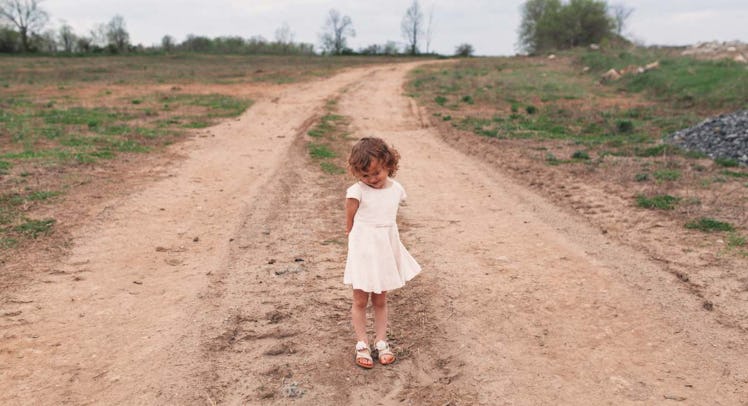How To Help Your Shy, Quiet Kid Feel More Comfortable
Some advice from Susan Cain, the author of "Quiet Power: The Secret Strengths of Introverted Kids".

In less than five minutes after you meet them, a lot of kids will tell you their life story with zero prompting. But for a true introvert, so much as making eye contact can send them running for cover behind a parent’s leg. Introverted kids may not be the life of the bounce house, but they often have more going on beneath the surface than more outgoing types, says Susan Cain, a TED Talker and author of the newly released Quiet Power: The Secret Strengths of Introverted Kids.
“Parents quickly learn their introverted kids process things deeply and have nuanced opinions about the world that make them interesting company,” says Cain. They also, she adds, tend to be exceptionally loyal, conscientious, and passionate “They dive deep and get a lot of enjoyment from their passions. And, if harnessed properly, they can get a great sense of mastery.”
Of course, it can be a bit difficult to help introverted kids feel comfortable in social situations. But some slight recalibrating of your parenting style, Cain says, can help them feel much more in place. Here are a few of her tips.
Get There Before the Crowd
Especially when entering a situation that’s new or will likely be a challenge for them — soccer tryouts and birthday parties, for instance — Cain says to get there early before it’s crowded. “You want the child to feel they own the place and feel that others are joining them in a space where they’re already comfortable,” she says. The frenzied feeling that accompanies being late or unprepared, she adds, does not help an introvert settle down.
Start by Microdosing Whatever Scares Them
For an introverted kid, learning a new skill can be intimidating. Cain’s suggestion? Start small and ease your child into it. If you have a child who is less than psyched about learning to swim, Cain suggests first taking them to the pool for a few minutes at a quiet time and let them get used to the area gradually. She compares the situation to an aircraft that requires a long time to lift off. “Let them know it’s cool that they need a longer runway, but that sometimes you have to do things that are uncomfortable now because you’ll be happy about it later.”
The Four-Pronged Approach to Make Your Shy Kid More Comfortable
- Arrive early. Showing up to a new situation or environment early allows a shy child to get acclimated, as well as feel as if the newcomers are joining them.
- Arrange for your shy child to engage in a new activity before signing them up for planned lessons. For example, allowing a kid to play in the pool before swimming lessons will raise their comfort level.
- Encourage your shy child to speak first, and with a planned statement, when in public. Speaking first or early is easier than waiting your turn.
- Accept your child’s inversion as a gift and not a challenge. Understand that your child’s introverted behavior is a matter of personal discomfort and not rudeness.
Get Them To Prep
Speaking up in class or another group setting often makes introverted children feel uncomfortable. To mitigate this, Cain suggests encouraging your child to prepare one or two remarks they might want to make and pipe up early. “Sometimes it’s easier to be one of the first to speak rather than waiting and feeling like all eyes are on you when you finally do,” Cain says.
Check Your Own Embarrassment
A deer in headlights is not standing in the road to be a dick. He’s doing it because he’s freaked out. Ditto for introverts who have trouble responding to a hello. “They’re doing it out of discomfort, not to be rude,” Cain says. “Tell them you know how they feel, but that it’s important they learn.” It’s okay sometimes to sweeten the deal, she adds, by maybe letting them pick any ice cream if they summon the bravery to order it themselves. Cain stresses, however, that parents should refrain from feeling wounded about how their child’s introversion might reflect upon them. “Parents need to check their own embarrassment,” she says, “it’s not about them.”
Learn to See Introversion as a Gift, Not a Liability
Nobody’s denying that raising an introvert can be tougher than raising a kid with a Forrest Gump-ian gift of gab. But, per Cain, “you have to truly treasure your child and come to feel their introversion is a gift and not a challenge.” Yes, quiet kids require a bit more parental planning. But once they speak up in their own way, it’ll all be worth it.
This article was originally published on